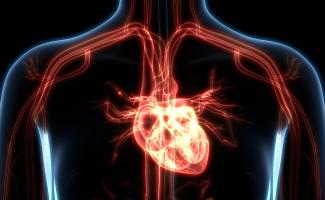Training is focused on research and patient care in areas that represent public health issues: nutrition, metabolic and cardiovascular pathologies.
Access to training
The Master's degree in Health Biology Research is intended for students in the scientific and health fields.
See the application conditions and the administrative registration procedure.
Objectives of the training
The training provides the necessary basis for the study of atherothrombogenic mechanisms with nutritional, immunological and metabolic components, as observed in metabolic diseases with vascular risk (diabetes, obesity, metabolic syndrome, dyslipidemia, renal failure, antiphospholipid syndromes, dysgravidia).
Beyond the teaching of nutritional, metabolic and vascular aspects, the training is completed by :
- methodological and conceptual skills
- in the clinical, preclinical and regulatory fields.
It thus opens up prospects in related research themes and multidisciplinary projects, including in structures on the fringes of research (food industry, health control and health promotion agencies).
Ce parcours, outre sa propre cohérence scientifique nutritionnelle, métabolique et vasculaire, souhaite ouvrir l’esprit du chercheur en formation vers des compétences méthodologiques ou conceptuelles et vers des aspects précliniques, cliniques ou réglementaires qui lui permettront d’évoluer vers des thématiques voisines, de s’intégrer dans des projets multidisciplinaires ou bien encore de s’insérer dans des structures en marge de la recherche comme l’industrie agro-alimentaire ou les agences de contrôle sanitaire et de promotion de la santé.
Opportunities
The research master's programme primarily prepares students for the pursuit of a doctoral thesis in science.
Obtaining a master's degree and a doctoral thesis in science represents a privileged mode of access to careers in management in :
- Public research institutions (INSERM, CNRS, INRA) and universities involved in fundamental fields related to human nutrition, metabolic diseases and atherothrombosis.
- pharmaceutical and/or food processing industries
- health and public health monitoring agencies (ANSES, HAS, ANSM, etc.)
- hospital centres (as hospital practitioners, doctors, pharmacists, scientific biologists)
- National and European Public Health Projects (PNNS)
Profil des étudiants
- Filières de santé civile et militaire (médecins, pharmaciens, vétérinaires, odontologistes, sages-femmes)
- Filières scientifiques
Objectives of the training
Opportunities
The research master's programme primarily prepares students for the pursuit of a doctoral thesis in science.
Obtaining a master's degree and a doctoral thesis in science represents a privileged mode of access to careers in management in :
- Public research institutions (INSERM, CNRS, INRA) and universities involved in fundamental fields related to human nutrition, metabolic diseases and atherothrombosis.
- pharmaceutical and/or food processing industries
- health and public health monitoring agencies (ANSES, HAS, ANSM, etc.)
- hospital centres (as hospital practitioners, doctors, pharmacists, scientific biologists)
- National and European Public Health Projects (PNNS)
Profil des étudiants
- Filières de santé civile et militaire (médecins, pharmaciens, vétérinaires, odontologistes, sages-femmes)
- Filières scientifiques
Lessons Learned Program
- Master 1 - General programme of courses
- Master 2 - General programme of courses
Contact for training managers
Persons in charge of the biology and health field
Professor Pierre MORANGE
Email: pierre-emmanuel.morange@univ-amu.fr
Professor Christophe DUBOIS
Email: christophe.dubois@univ-amu.fr
Tel : 04 91 32 46 80
Address: Inserm URM-S-1076, Faculty of Pharmacy
Head of the Metabolic and Vascular Diseases Speciality
Professor Anne DUTOUR
Email: anne.dutour@ap-hm.fr
Tel : 04 91 32 45 04
Address: UMR INSERM 1062 nutrition, obesity and thrombotic risk, INRA 1260
Faculty of Medical and Paramedical Sciences, 3rd floor blue wing

